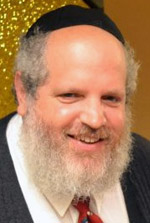Terumah (Gifts)

CARLSBAD, California — This week’s Torah portion is titled, Terumah, which means gifts. Just as last week’s portion – which dealt in detailed specifics of Torah law in everyday life – represented a dramatic shift from the portion before – which told the story of the 10 Commandments – so too this week’s portion makes another dramatic turn and conveys the specifics of building the Tabernacle. The word ‘Tabernacle’ comes from the Latin ‘tabernaculum,’ which means ‘tent.’ The Torah describes this unique mobile structure as the Mishkan (Dwelling Place) and as the Ohel Mo’ed (Tent of Meeting).
For Whom was this a Dwelling Place and exactly Who met with whom?
G-d Almighty commanded the building of this sanctuary so that His Presence could reside there, and so He would have a place to meet with, and communicate with, Moses, and other members of the Jewish Nation.
This begs the question: do we not believe that G-d may be found everywhere? If He is Omnipresent what is the point of this structure and those that came after it, the Holy Temples? The answer is somewhat counter-intuitive. The building of the Mishkan was a consequence of the Sin of the Golden Calf. A very short time after receiving the 10 Commandments from G-d at Sinai, and while Moses was still sequestered with the Giver of the Law, some in the Jewish camp engaged in the heinous sin of idol worship.
Question: What is the typical punishment of one who openly rebels against a king in his presence?
If not for Moses ‘going to bat’ for his people and insisting that G-d give them another chance (or else erasing Moses’ name from the Torah altogether), indeed the Jewish nation would have been eradicated on the spot, G-d forbid! In order to protect the Jews from the consequences of sinning in the revealed Presence of G-d, He ‘hid’ Himself, as it were. G-d’s passionate love for His people caused Him to further contract His Presence and limit His revelation to within the confines of the Mishkan.
With this in mind the wording of the Portion can instill us with a burning love of our Father in Heaven, for the portion says something grammatically odd. The portion states, “Vi’asoo lee mikdash vi’Shachantee bi’Tocham,” which means, “And make for Me a dwelling place and I will dwell in them.” The passage begins with a plural and ends in the singular!
The commentaries explain this anomaly. When the Torah says the plural ‘in them’ it means within each and every one (of us). This means that we each have the capacity to make ourselves into a holy, dwelling place, for our Creator!
And how, pray tell, are we able to make ourselves into a sanctuary and dwelling place for the divine? The answer to that is likewise found in our portion. We find that the world’s first building campaign was unveiled when Moses asked the people to donate 15 various materials so that the Mishkan could be constructed. As an aside, the people reacted with alacrity and incredible generosity, for very soon they had all they needed, “And more!” states the Torah.
What happens when a person takes of his or her material wealth and dedicates it to the service of the Almighty? The Kabbalists explain that the material item becomes elevated, and the G-dly spark that resides within it (allowing it to exist according to Lurianic Kabbalah) is revealed. That is why the physical edifice of the Mishkan was a place that revealed G-dliness, and that is how each of us has the ability, indeed the mandate, to likewise be a presence that literally reveals G-dliness!
Shabbat Shalom!
*
Rabbi Yeruchem Eilfort is Director of Coastal Chabads and Chabad at La Costa. Rabbi Eilfort welcomes readers’ comments and questions and may be reached at RabbiE@ChabadatLaCosta.com.